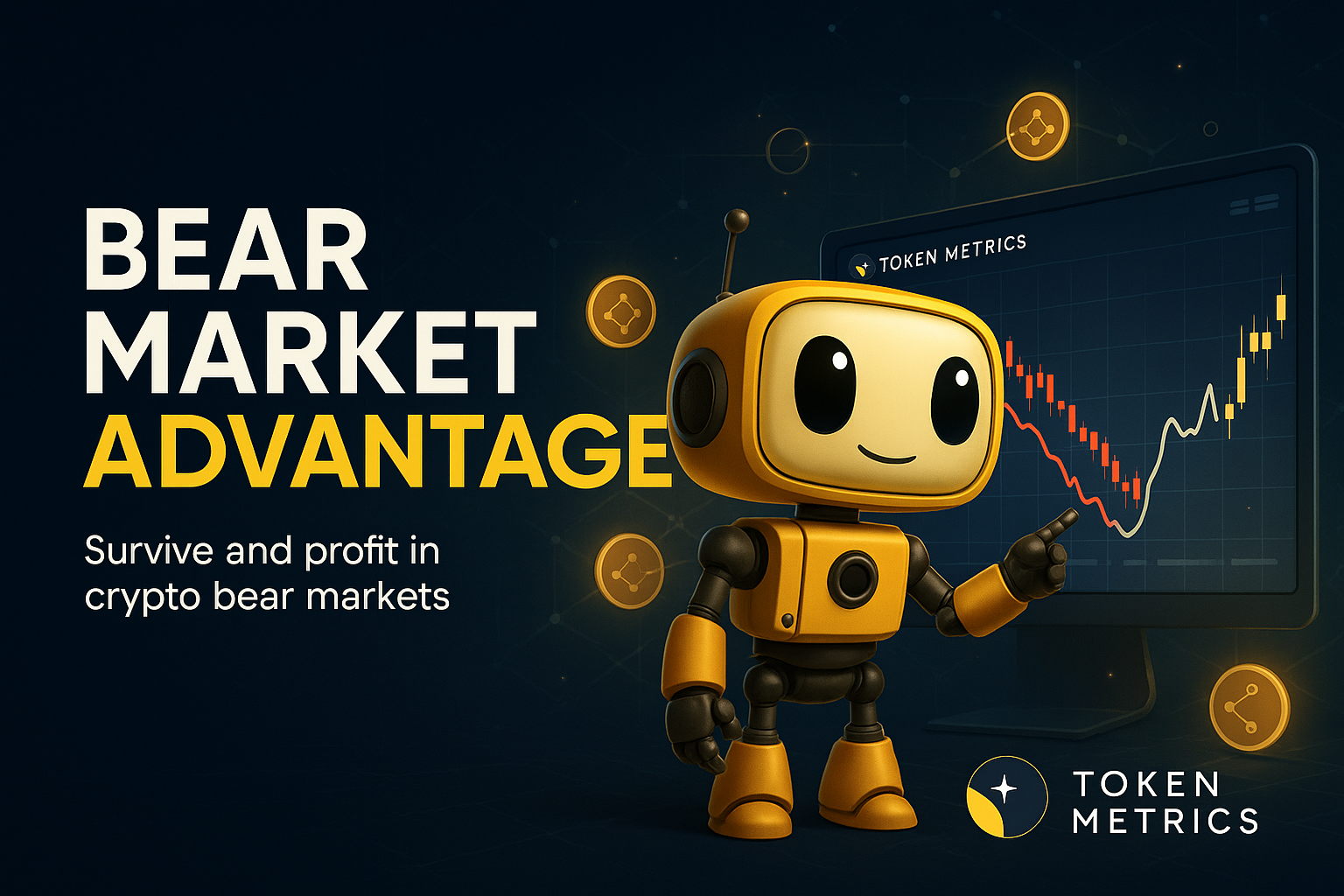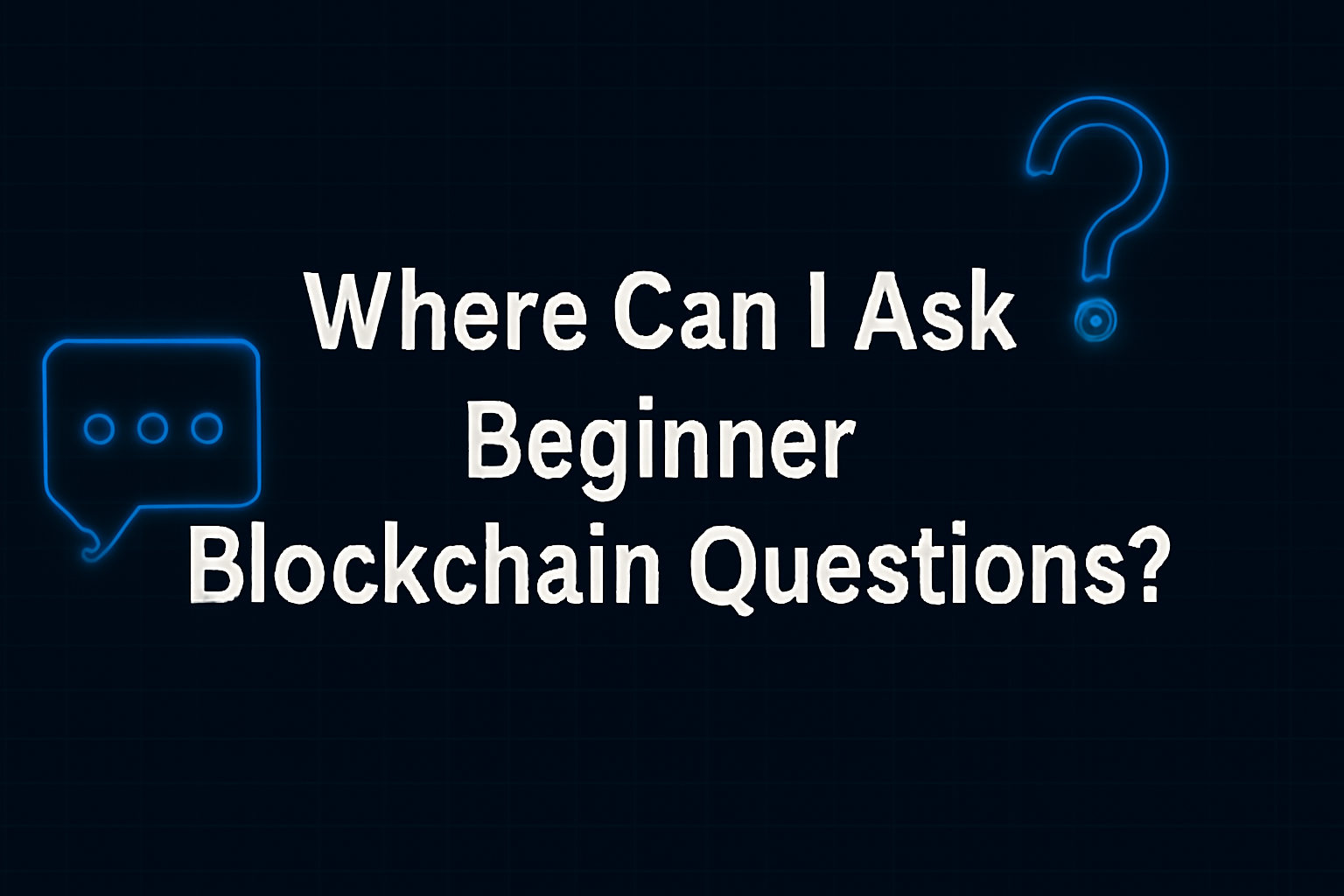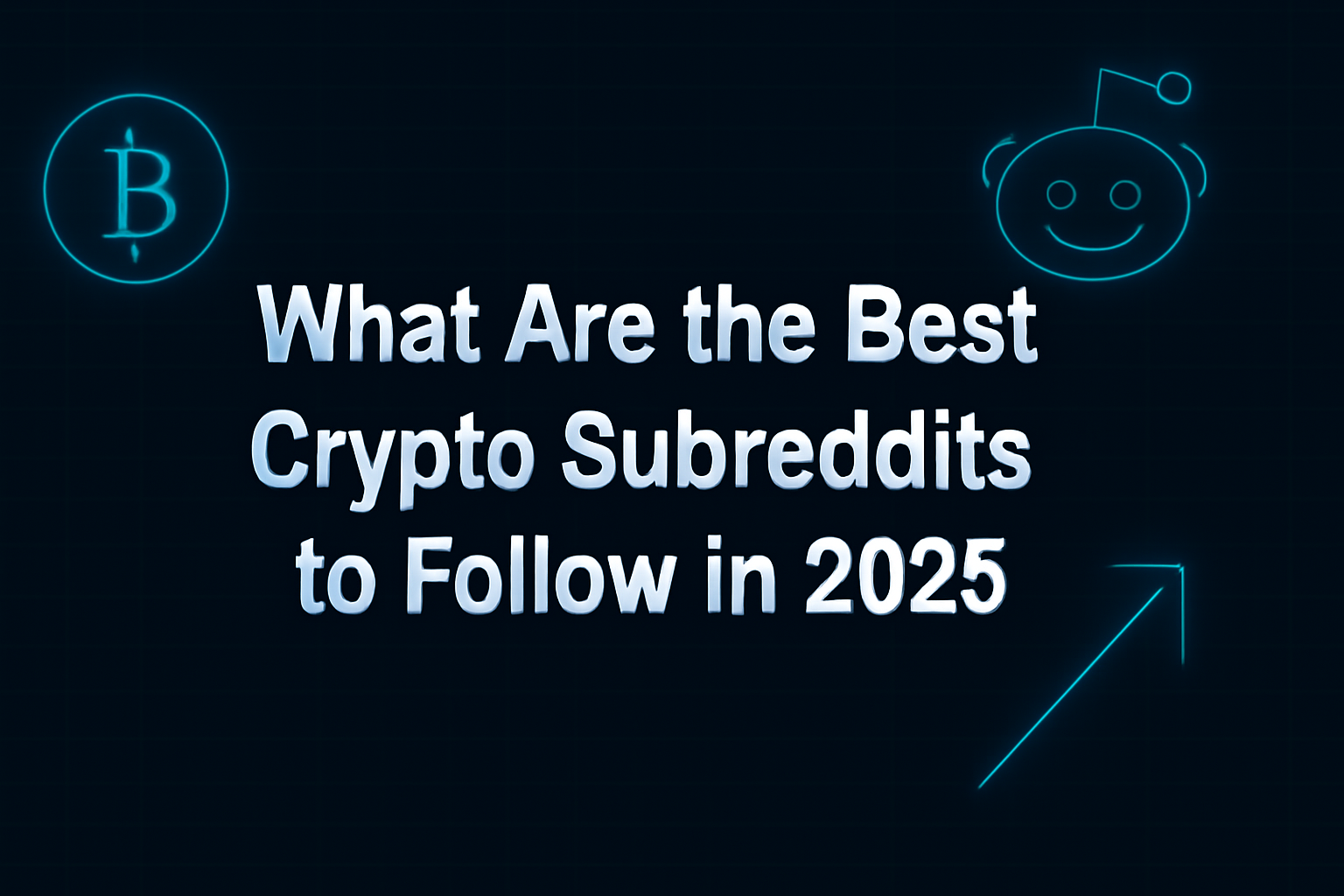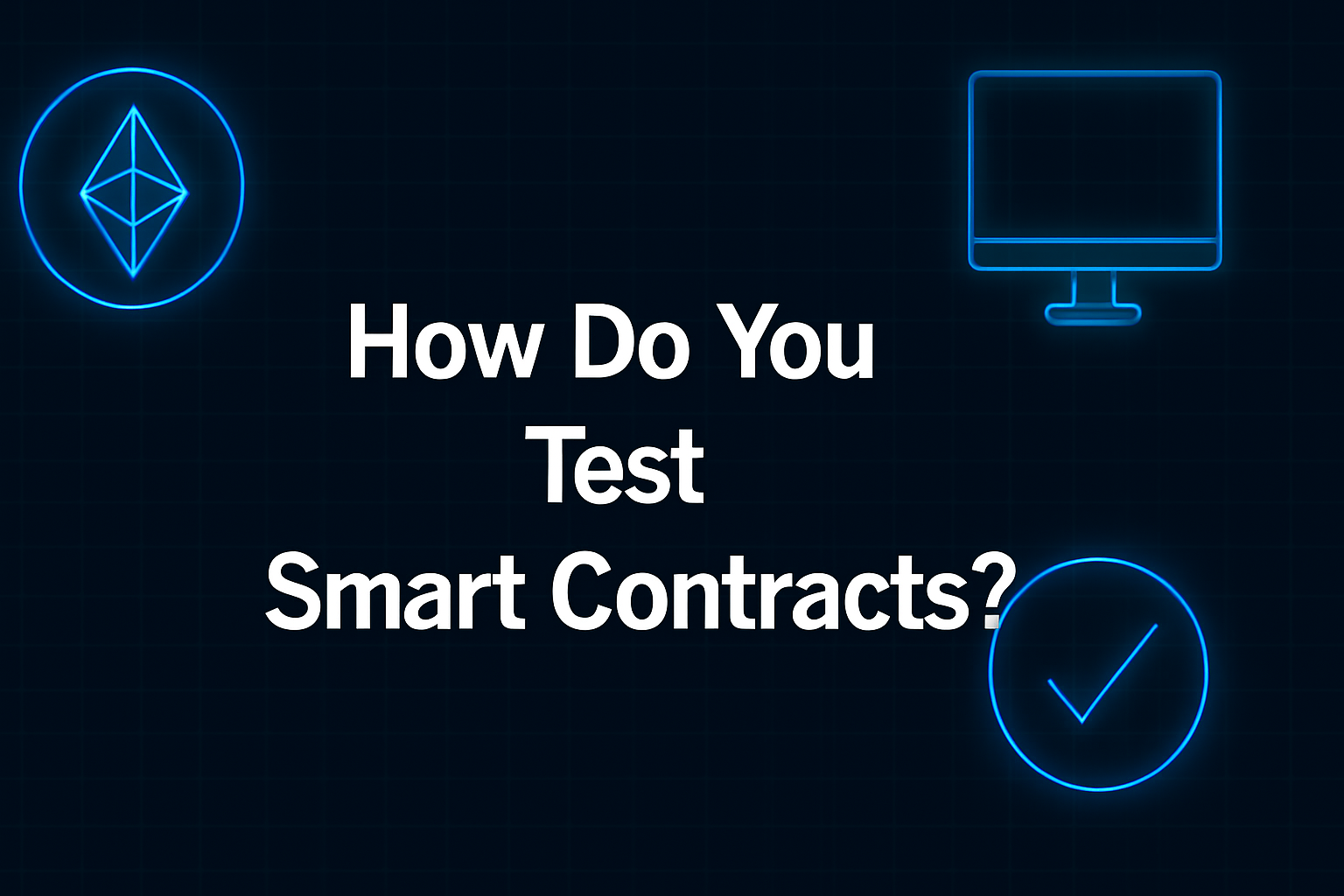
How to Survive (and Profit) During Crypto Bear Markets with Token Metrics Indices

The Inevitable Truth: Bear Markets Will Come
Every crypto investor experiences the same cycle of emotions. The bull market feels amazing—your portfolio soars, everything you touch turns to gold, you feel like a genius. Then the bear market arrives, destroying 60-80% of portfolio value, and suddenly you're questioning every decision.
Here's what separates successful long-term crypto investors from the 95% who lose money: how they handle bear markets.
The difference isn't intelligence, luck, or market timing. It's having a systematic strategy that protects capital during downturns, positions for recovery, and actually capitalizes on opportunities that only exist when fear dominates markets.
Token Metrics indices aren't designed just for bull markets—they're specifically engineered to help investors survive bears and emerge stronger. This guide reveals exactly how to use crypto indices during the inevitable next downturn.
Understanding Crypto Bear Markets
Before developing strategy, understand what you're facing.
Bear Market Characteristics
Duration: Crypto bear markets typically last 12-18 months, though some extend to 24+ months.
Depth: Average decline of 70-85% from peak to bottom for the overall market. Individual tokens often drop 90-95% or disappear entirely.
Phases: Bear markets progress through distinct stages: denial, capitulation, despair, and eventual recovery. Each requires different strategies.
Frequency: Historically, major crypto bear markets occur every 3-4 years, aligned with Bitcoin halving cycles.
The 2022-2023 Bear Market Example
Timeline: November 2021 peak to November 2022 bottom
Bitcoin Decline: -77% (from $69,000 to $15,500)
Ethereum Decline: -82% (from $4,800 to $880)
Average Altcoin: -90%+ (most never recovered)
Token Metrics Value Index: -62% (outperformed market by 15-20%)
Key Insight: Quality-focused indices lost significantly less than individual token holders and recovered much faster.
The Token Metrics Bear Market Advantage
How do Token Metrics indices specifically help during downturns?
Advantage 1: Automatic Risk Reduction
AI-powered indices can reduce exposure or shift to stablecoins in bearish conditions, enhancing risk management before most human investors recognize the severity.
How It Works:
Detection Phase: AI identifies deteriorating market conditions through:
- Declining volume and momentum
- Breaking key support levels
- Negative sentiment acceleration
- Reduced on-chain activity
- Increasing correlation (everything falling together)
Adjustment Phase: Indices automatically:
- Reduce altcoin exposure by 30-50%
- Increase Bitcoin and stablecoin allocation
- Exit lowest-quality holdings completely
- Decrease position sizes across the board
Result: By the time human investors panic, Token Metrics indices have already protected significant capital.
Advantage 2: Quality Focus Prevents Catastrophic Losses
During bear markets, 80% of tokens either fail completely or never recover previous highs. Token Metrics' fundamental analysis ensures indices hold survivors, not casualties.
Quality Filters:
Team Stability: Projects with solid teams weather bears; those with departing founders fail.
Treasury Management: Protocols with 2+ years runway survive; underfunded projects die.
Real Utility: Tokens solving actual problems maintain value; pure speculation goes to zero.
Community Strength: Engaged communities support recovery; hype-driven communities vanish.
Example: During 2022-2023, Token Metrics indices avoided Luna/UST, FTX-associated tokens, and dozens of other projects that imploded, preventing catastrophic losses that individual investors suffered.
Advantage 3: Systematic Rebalancing Captures Opportunities
Bear markets create pricing dislocations where quality assets trade at irrational valuations. Token Metrics' systematic approach identifies and captures these opportunities.
Opportunity Capture:
Selling Resistance: When quality tokens hit support and stabilize, indices accumulate.
Relative Strength: Tokens declining less than market average get increased allocation.
Fundamental Improvement: Projects using bear markets to build get recognized early.
Strategic Positioning: Indices position for recovery before sentiment improves.
Get Started For Free
Your Bear Market Survival Strategy
Here's your actionable playbook for using Token Metrics indices during the next downturn.
Phase 1: Pre-Bear (Market Topping)
Indicators You're Approaching a Top:
- Extreme euphoria and FOMO
- Your barber asking about crypto
- 100+ new tokens launching daily
- Token Metrics Bullish Indicator >80
- Mainstream media celebrating crypto millionaires
Actions to Take:
Profit-Taking Protocol:
- Take 20-30% profits from portfolio
- Move proceeds to stablecoins or traditional assets
- Don't try to sell the exact top
- Lock in life-changing gains if they exist
Reallocation Strategy:
- Shift from Momentum/Sector indices to Value Index
- Increase Value Index allocation from 40% to 60%+
- Reduce or eliminate high-risk indices (Memecoin, aggressive sectors)
- Build 3-6 month cash reserves
Mental Preparation:
- Accept that a bear market is coming
- Review your investment thesis
- Document why you're invested long-term
- Prepare emotionally for 50-70% decline
Example: Michael, experienced investor, recognized market euphoria in late 2021. He took 25% profits ($150,000 from $600,000 portfolio), shifted to 70% Value Index, and held $100,000 cash. During subsequent bear, his remaining $450,000 only declined to $200,000 instead of $120,000, plus he had dry powder to deploy.
Phase 2: Early Bear (Denial Phase)
Characteristics:
- 20-30% decline from peaks
- "It's just a correction" sentiment
- Buying the dip enthusiasm
- Many still optimistic
Token Metrics Index Behavior:
- Begins defensive positioning
- Reduces altcoin exposure
- Increases Bitcoin allocation
- Raises quality bar for holdings
Your Actions:
Don't Panic, Don't Euphoria:
- Maintain your rebalanced allocation
- Don't try to "buy the dip" aggressively yet
- Continue regular DCA but don't accelerate
- Trust index automatic adjustments
Review and Refine:
- Ensure you have adequate emergency fund
- Verify employment/income stability
- Assess whether crypto allocation still appropriate
- Prepare for potentially longer downturn
Avoid Common Mistakes:
- Don't go "all in" thinking it's the bottom
- Don't sell everything in fear
- Don't abandon your strategy
- Don't stop regular contributions if financially stable
Phase 3: Mid-Bear (Capitulation Phase)
Characteristics:
- 50-70% decline from peaks
- Despair and panic selling
- Media declaring "crypto is dead"
- Mass liquidations and cascading failures
- Token Metrics Bullish Indicator <30
Token Metrics Index Behavior:
- Maximum defensive positioning
- Heavy Bitcoin and stablecoin weights
- Only highest-quality altcoins remain
- Preparing to accumulate at bottoms
Your Actions:
The Accumulation Strategy:
This is when fortunes are made. While others panic, you accumulate systematically.
Increase DCA Contributions:
- If financially stable, increase contributions by 50-100%
- Deploy 30-50% of reserved cash
- Focus purchases on Value Index
- Buy consistently, not all at once
Maintain Indices, Add Selectively:
- Keep existing index holdings
- Consider adding to positions at 60-70% discounts
- Focus on Value and Balanced indices
- Avoid speculation (resist Memecoin temptation)
Emotional Discipline:
- This will feel terrible—portfolio down 60%+
- Remember: Every previous bear market ended
- Review historical recovery patterns
- Stay focused on 5-10 year horizon
Real Example: Sarah maintained $2,000 monthly DCA through entire 2022 bear market while others stopped. She increased to $3,000 during deepest panic (November 2022). Those additional purchases at lows generated 300%+ returns during 2023-2024 recovery, dramatically improving overall portfolio performance.
Phase 4: Late Bear (Despair and Basing)
Characteristics:
- Market has bottomed but nobody knows it yet
- Extreme pessimism and apathy
- Volume dries up
- Prices stabilize in tight ranges
- Could last 3-9 months
Token Metrics Index Behavior:
- Begins rebuilding altcoin exposure
- Identifies quality projects building through bear
- Gradually increases risk as signals improve
- Positions ahead of recovery
Click here to signup for free trial account!
Your Actions:
Maximum Accumulation Period:
Deploy Remaining Reserves:
- This is your final opportunity to buy cheap
- Use remaining 50% of reserved cash
- Continue elevated DCA contributions
- Focus on Value and Growth indices
Rebalancing Preparation:
- Maintain current defensive allocation
- Don't rush into aggressive indices
- Wait for clear recovery signals
- Trust Token Metrics' systematic repositioning
Psychological Battle:
- This phase tests patience most
- Nothing exciting happening
- Easy to lose interest
- Critical to stay engaged
Education Phase:
- Use slow period to learn more
- Research Token Metrics features
- Understand your indices better
- Prepare strategy for next bull
Phase 5: Recovery and Next Bull
Characteristics:
- 30-50% rally from bottom
- Skepticism ("bull trap" fears)
- Gradual improvement in sentiment
- Token Metrics Bullish Indicator crosses 50
Token Metrics Index Behavior:
- Increases altcoin exposure
- Adds sector-specific holdings
- Raises overall risk profile
- Begins new accumulation cycle
Your Actions:
Normalize Strategy:
- Return to regular DCA amounts
- Rebalance toward target allocations
- Consider adding Growth or Sector indices
- Begin taking modest profits again at milestones
Lessons Documentation:
- Write down what worked
- Note what you'd do differently
- Update strategy based on experience
- Prepare for next cycle
The "Never Sell All" Principle
The single biggest mistake investors make during bear markets: selling everything at the bottom.
Why This Destroys Wealth:
Missing Recovery: The strongest gains occur in first weeks of recovery when sentiment is still negative.
Tax Consequences: Realizing losses permanently caps future gains.
Re-entry Difficulty: Psychological barrier to buying back after selling low.
Timing Impossibility: Nobody knows exact bottom.
The Rule:
Regardless of how bad it gets, maintain minimum 50% of your crypto index holdings. If you started with 20% crypto allocation, never go below 10%.
Example: David panicked in November 2022 and sold 80% of holdings near the bottom at massive losses. When recovery began in January 2023, he couldn't bring himself to rebuy after "losing so much." He missed the entire 2023-2024 rally that would have recovered his losses and generated new gains.
Contrast: Jennifer held all her Token Metrics indices through entire bear market despite being down 65%. By late 2024, she was not only back to breakeven but up 40% from original investment. Patience paid off.
Bear Market Checklist
Use this checklist to navigate the next downturn:
Financial Preparation: ☐ 6-12 month emergency fund established ☐ Employment/income secure ☐ No high-interest debt ☐ Crypto allocation appropriate for risk tolerance
Portfolio Preparation: ☐ Shifted toward Value-heavy allocation ☐ Taken partial profits during euphoria ☐ Built cash reserves for accumulation ☐ Reviewed and understand your indices
Psychological Preparation: ☐ Accepted bear markets are inevitable ☐ Reviewed historical patterns ☐ Documented investment thesis ☐ Prepared to buy during fear
During Bear Market: ☐ Maintain minimum holdings (never sell all) ☐ Continue DCA (increase if possible) ☐ Deploy reserves during capitulation ☐ Avoid panic selling ☐ Trust Token Metrics' systematic approach
Recovery Phase: ☐ Normalize DCA contributions ☐ Rebalance to target allocations ☐ Document lessons learned ☐ Prepare for next cycle
The Psychological Edge
Bear markets aren't primarily financial challenges—they're psychological warfare.
Common Emotional Traps:
Panic Selling: Portfolio down 60%, selling everything to "stop the bleeding."
Paralysis: Too afraid to continue investing despite great prices.
Despair: Convinced crypto is dead, giving up entirely.
FOMO Reversal: Switching to "safe" assets just before recovery.
Token Metrics Psychological Advantages:
Removes Decisions: Indices automatically adjust, you don't have to.
Systematic Approach: Following a system easier than trusting gut.
Historical Confidence: 8000% track record through multiple bears.
Community Support: Other Token Metrics users experiencing same challenges.
The Bottom Line
Bear markets separate tourists from serious wealth builders. Tourists panic, sell at bottoms, and never return. Serious investors use systematic approaches like Token Metrics indices to:
- Protect more capital during declines
- Accumulate quality assets at discounts
- Position ahead of recovery
- Build generational wealth through complete cycles
Get Started For Free
The next bear market is inevitable. Your strategy for navigating it determines whether you emerge wealthy or wounded.
Token Metrics indices provide the systematic framework. Your discipline provides the execution.
Prepare now. Survive the next bear. Thrive in the following bull.
Ready to build bear-market-proof strategy? Visit Token Metrics to access indices designed for all market conditions.
Click here to signup for free trial account!

.svg)

Create Your Free Token Metrics Account

.png)




%201.svg)
%201.svg)


%201.svg)









.svg)




.png)